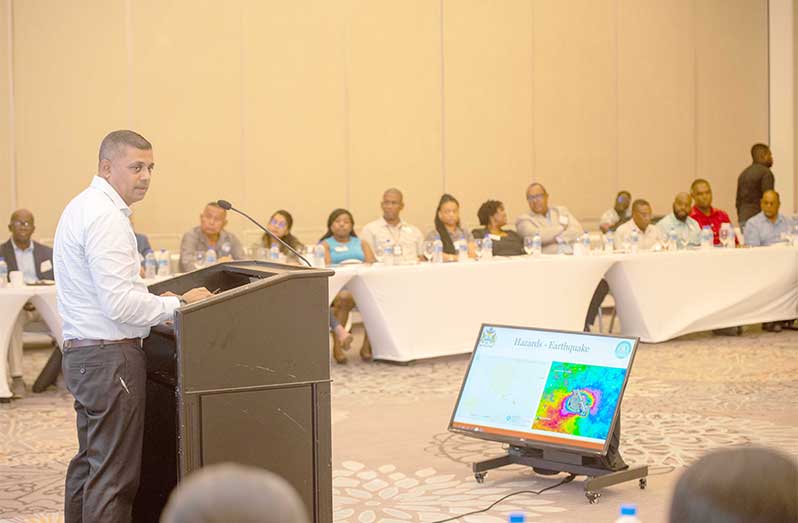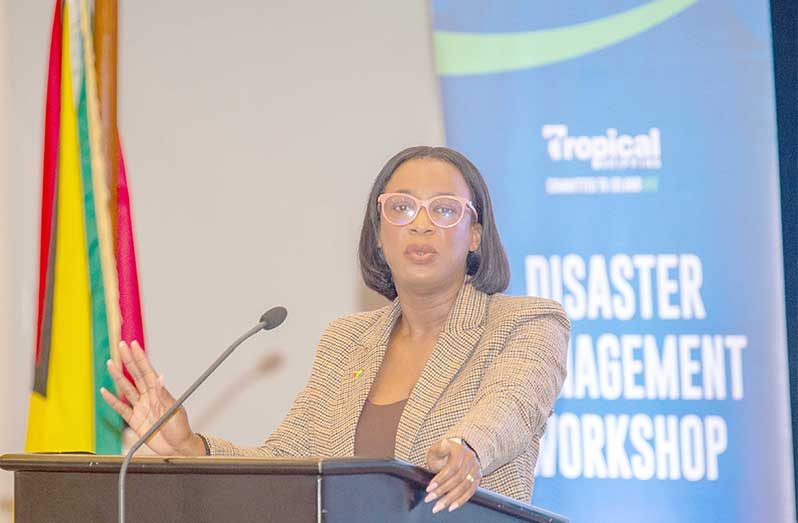– aims to strengthen resilience through public-private partnership
TROPICAL Shipping, on Wednesday, hosted a pivotal Disaster Management Workshop at the Guyana Marriott Hotel under the theme “Beyond the Storm: Strengthening Private-Public Partnership for Resiliency.” The event brought together key stakeholders from government agencies, the private sector, and civil society to address the pressing need for disaster preparedness and cyber resilience in Guyana and the wider Caribbean.
The workshop is part of Tropical Shipping’s broader commitment to supporting community disaster preparation, mitigation, and recovery across the region, including the Caribbean and the Bahamas.
Through initiatives like this, the company aims to promote smart planning and coordinated response strategies to combat both natural and man-made threats.
In his address, Major Lakshman Persaud, Preparedness and Response Manager at the Civil Defence Commission (CDC), emphasised the growing threat posed by increasingly frequent wind storms and the need for continuous readiness.

He outlined the CDC’s efforts during past flood emergencies, including the establishment of emergency shelters—some of which played critical roles during the COVID-19 pandemic.
Meanwhile, Kathy Smith, President of the Georgetown Chamber of Commerce and Industry (GCCI) and Vice-Chair of the Private Sector Commission (PSC), underscored the importance of collaboration. She reflected on the devastating 2005 flood, which significantly affected Guyana’s coastline and crippled infrastructure, businesses, and the agriculture sector.
“We need to not just prepare for disaster management, but also preventative measures, and this is where collaboration comes in,” Smith stated. She called on the private sector to enhance preparedness, not only by flood-proofing offices but also by developing comprehensive contingency plans and ensuring access to critical data during times of crisis.
She further urged the business community to support national relief efforts and to contribute toward creating a resilient environment for both current citizens and returning Guyanese.
“Let us leave our country in a place where people feel comfortable coming back to—a country we’ve helped prepare and protect,” she appealed.
Participants engaged in group activities and discussions around key topics such as The Economic Impact of Disasters and Cybercrime Breaches: Economic and Reputational Consequences. Expert speakers also explored the use of technology in business continuity planning, including the role of artificial intelligence and insights into Guyana’s natural hazard vulnerabilities.
The workshop not only highlighted the real and growing risks posed by natural disasters and cyber threats but also reinforced the need for unified, proactive planning to ensure long-term economic and social resilience.



.jpg)









